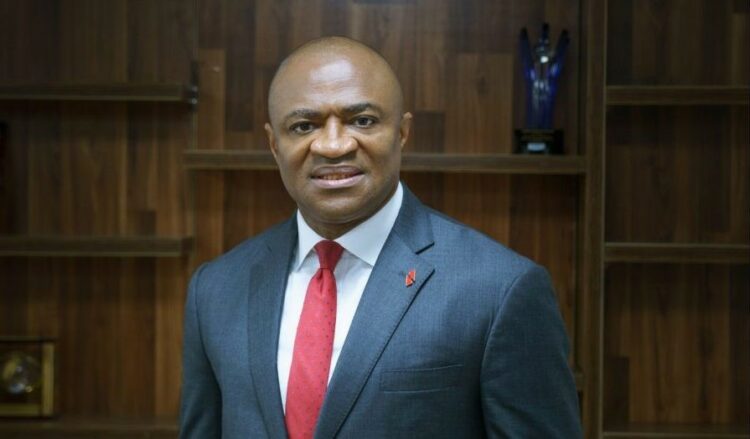The group managing director of United Bank for Africa, Oliver Alawuba has called for speedy resolution of disputes in the financial industry, as he said prolonged litigation and enforcement bottlenecks further increases the risk profile of financial transactions.
Speaking at the 23rd National Seminar on Banking and Allied Matters for Judges, organised by CIBN and the National Judicial Institute, Alawuba pointed out that prolonged litigation and enforcement bottlenecks impede credit access, raise the cost of capital, and limit the capacity of banks to support SMEs and job creation.
Alawuba who is also the chairman of the Body of Bank CEOs, emphasised that a stable and efficient judiciary is critical for Nigeria’s economic transformation. He noted that the effectiveness of the financial system is largely dependent on a responsive and knowledgeable judiciary, particularly in resolving cases involving cybercrime, fraud, and enforcement of financial contracts.
He highlighted the rising burden of non-performing loans – now over N1.57 trillion – as a symptom of judicial inefficiencies and urged urgent reforms, including digitisation, capacity building, and the establishment of specialized financial courts.
Stressing the importance of collaboration he said “our partnership is not one of convenience, but of necessity. Without a strong, efficient judiciary, banks will struggle to extend credit with confidence. Without a sound financial system, government revenues, public investments, and judicial infrastructure cannot be sustainably financed.
“In Nigeria, however, judicial delays, overlapping jurisdictions, and enforcement challenges continue to increase the risk profile of financial transactions. Prolonged litigation and enforcement bottlenecks are not mere technicalities – they impede credit access, raise the cost of capital, and limit the capacity of banks to support SMEs and job creation.
“No economy can flourish without the enabling guardrails of justice. From credit systems to contract enforcement, the banking industry depends daily on the efficiency, fairness, and predictability of our judicial processes,” Alawuba stated.
In her remarks, the Chief Justice of Nigeria, Justice Kudirat. Kekere-Ekun, affirmed the critical role of the judiciary in promoting financial confidence and legal predictability. “Judicial predictability is not just a legal virtue – it is an economic asset. It enhances market efficiency, lowers risk premiums, and unlocks capital for infrastructure and business development,” she remarked.
Justice Kekere-Ekun called for continuous judicial education in emerging areas such as digital finance, cybercrime, and fintech innovation, noting that: “Our courts must possess the capacity to interpret complex transactions and assess novel financial arrangements within the framework of existing laws.”
The Administrator of the National Judicial Institute, Hon. Justice Salisu Abdullahi, highlighted the judiciary’s critical function in driving investor confidence and economic stability, adding that: “A Judiciary that is both competent and fiercely independent doesn’t just resolve disputes; it actively underwrites economic growth. It creates a fertile ground where capital feels safe to land, innovation can flourish, and businesses can thrive.”
President and chairman of Council, CIBN, Prof. Pius Olanrewaju, emphasised the core theme of the seminar: “Trust is the lifeblood of banking, and security its bedrock. Every financial transaction, from deposits to loans, hinges on the assurance that rights will be upheld, obligations fulfilled, and injustices addressed.” He reiterated the role of the judiciary in sustaining the integrity of the banking system and catalyzing national growth.











